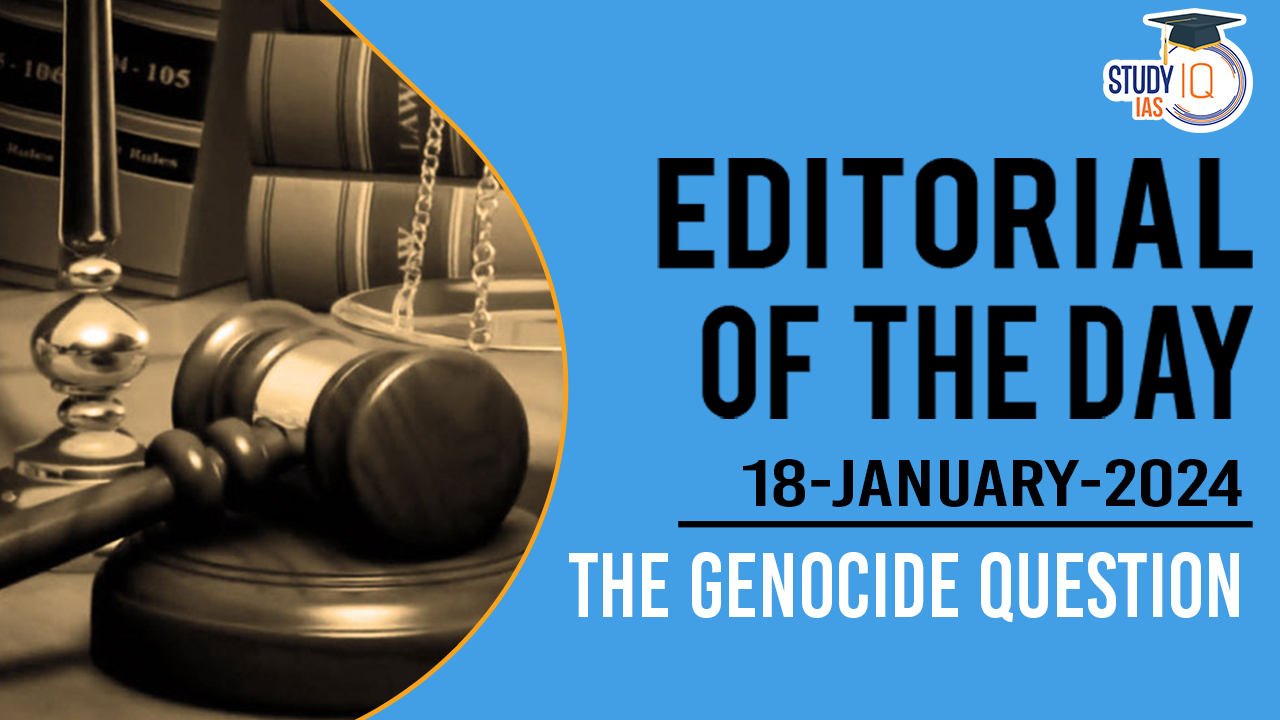Table of Contents
Context: South Africa lodged a case against Israel at the International Court of Justice (ICJ), alleging violations of the Genocide Convention due to Israel’s treatment of Palestinians.
Legal Proceedings and International Law
- South Africa has submitted a legal complaint to the ICJ, alleging that Israel’s actions against Palestinians constitute a breach of the Genocide Convention.
- The Genocide Convention, established in 1948, aims to prevent and punish the crime of genocide, which involves acts intended to destroy, in whole or in part, a national, ethnical, racial, or religious group.
Arguments and Defense
- South Africa accuses Israel of engaging in acts that could be seen as genocidal towards Palestinians.
- Israel defends its actions as necessary self-defense against hostilities and terrorism, not acts of genocide. It stresses its commitment to the principle of “Never Again,” a reference to preventing atrocities like the Holocaust.
We’re now on WhatsApp. Click to Join
Judicial Challenges
- The ICJ must first determine if it has jurisdiction and if a dispute under the Convention exists between the two nations.
- Establishing genocidal intent is a significant legal challenge due to the complexity of proving such allegations under international law.
Historical Precedents
- Past cases, such as the Srebrenica genocide, have set precedents for how the ICJ handles allegations of genocide.
- These cases illustrate the high bar for evidence and the lengthy processes involved in adjudicating allegations of genocide.
Humanitarian Concerns
- The conflict’s impact on civilians, including deaths, injuries, and destruction of civilian infrastructure, highlights the severe humanitarian issues at stake.
- Past conflicts and ICJ cases reveal that providing consistent humanitarian relief can be complicated and often fraught with challenges.
Prospects for Resolution
- The current litigation could prompt the ICJ to develop new legal interpretations or methods for addressing such international disputes.
- However, the effectiveness of any ICJ decision may be limited by the geopolitical realities of enforcement and compliance, which historically have been problematic.


 Industrial Parks in India: Driving Manuf...
Industrial Parks in India: Driving Manuf...
 National Maritime Heritage Complex (NMHC...
National Maritime Heritage Complex (NMHC...
 Reforming Fertiliser Subsidy in India: N...
Reforming Fertiliser Subsidy in India: N...

























